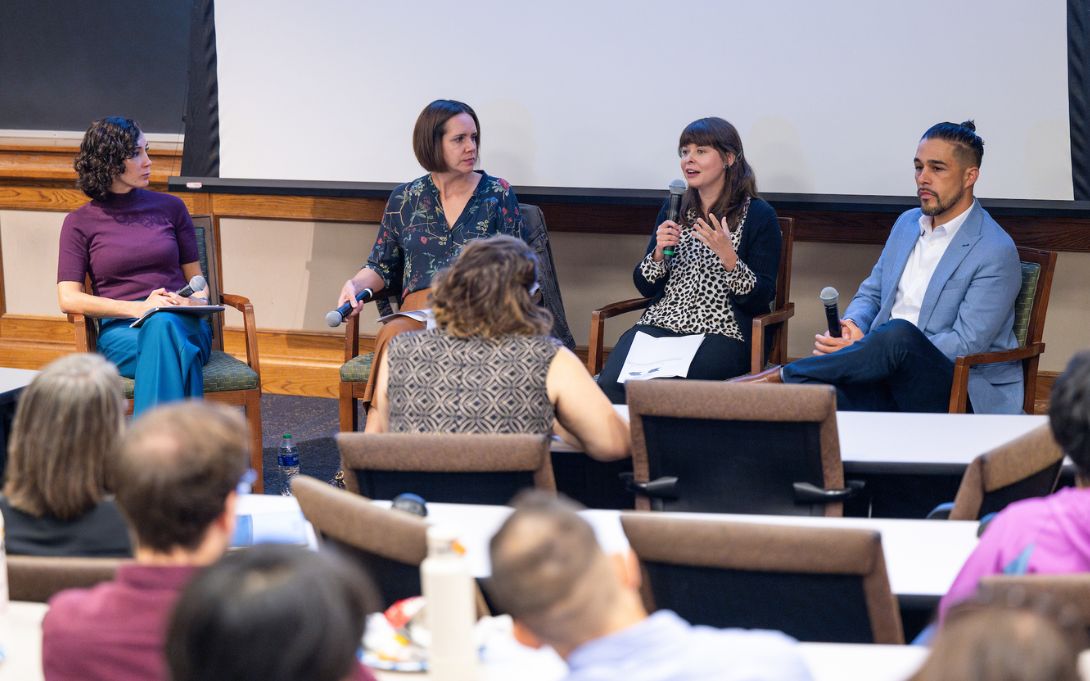
The Ford School’s fall event series kicked off with more than 115 people in attendance for Immigration on the Ballot, a panel discussion about the policy landscape and implications for the upcoming election, hosted by the Center for Racial Justice.
“Americans named immigration the single most important problem facing the U.S. for three straight months this year,” explained political scientist Mara Ostfeld. “But Americans have vastly different views toward elements of immigration policy. It is important that we disentangle these policies to better understand the meaning, opportunities, and challenges behind different proposals.”
Sociology professor Angela García highlighted how undocumented immigrants spend years in legal limbo, navigating endless bureaucratic obstacles without resolution in sight.
“We haven't had, what we’d call, comprehensive immigration reform since 1986 in the United States,” she explained. “Policies are changing, but a lot of folks are stuck waiting. This is a really difficult place to be in because there's not even a date that they can cross off on their calendars; they don’t have a date to look forward to [for obtaining legal status].”
Postdoctoral fellow Kristina Fullerton Rico emphasized immigrants’ vital role in the U.S. economy, especially as essential workers during COVID.
“During the COVID-19 pandemic, immigrants were greatly overrepresented among those categorized as essential workers, and we continue to have jobs that are not being filled,” Fullerton Rico said. “When we hear fear mongering stories about there not being enough room in the U.S., look around. Think about the demand that there is for workers and the people who are available to work those jobs.”
Public health professor William D. Lopez further noted that immigration policies have allowed corporations to accrue increasingly large profits while undocumented immigrant workers are denied basic protections such as social security, workplace compensation, and healthcare.
“This really is a struggle for justice,” Lopez said. “Part of the economic story we need to demystify is that we've created a very exploitable population that people are making millions and millions of dollars off of.”
When asked what policy recommendations they would like to see in a presidential candidate's campaign, panelists called for the immediate legalization of undocumented immigrants instead of a lengthy pathway to citizenship, fair wages and protections for immigrant workers, faster processing and travel flexibility for visa applicants, and reducing police collaboration with ICE to ensure safety and mobility within communities.
Immigration on the Ballot was co-sponsored by the Latina/o Studies Program, the Anti-Racism Collaborative, the Trotter Multicultural Center, and the Ginsberg Center.

